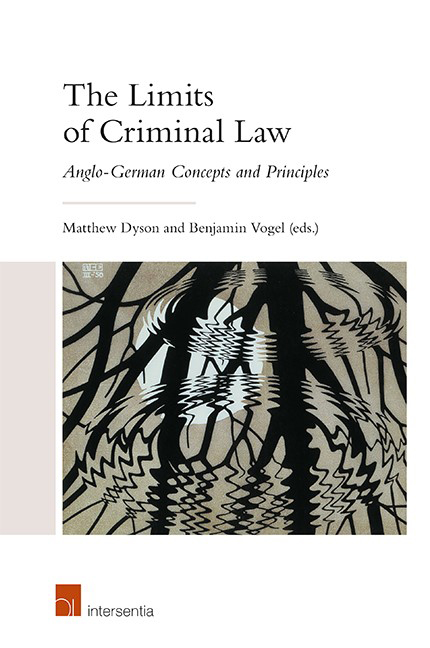Book contents
- Frontmatter
- Preface
- Contents
- List of Cases
- List of Abbreviations
- List of Contributors
- Chapter 1 Introduction
- PART I CORE PRINCIPLES OF CRIMINAL LAW
- PART II CRIME AND TORT
- PART III CRIME AND MEDICAL
- PART IV CRIME AND REGULATION
- PART V ADMINISTRATIVE SANCTIONS
- PART VI ALTERNATIVE ENFORCEMENT
- PART VII COUNTER-TERRORISM
- PART VIII CRIME AND INTELLIGENCE
- PART IX CONCLUSION
- Index
- About the Editors
Chapter 19 - Alternative Enforcement Compared: Between Punishment and Prevention
Published online by Cambridge University Press: 11 February 2021
- Frontmatter
- Preface
- Contents
- List of Cases
- List of Abbreviations
- List of Contributors
- Chapter 1 Introduction
- PART I CORE PRINCIPLES OF CRIMINAL LAW
- PART II CRIME AND TORT
- PART III CRIME AND MEDICAL
- PART IV CRIME AND REGULATION
- PART V ADMINISTRATIVE SANCTIONS
- PART VI ALTERNATIVE ENFORCEMENT
- PART VII COUNTER-TERRORISM
- PART VIII CRIME AND INTELLIGENCE
- PART IX CONCLUSION
- Index
- About the Editors
Summary
The preceding pair of chapters shows neatly how stepping outside the criminal trial, and its limits, can raise powerful questions about what the criminal law is. First, we might start with a definition of alternative enforcement. Alternative measures of the enforcement of criminal prohibitions are those state encroachments on liberty which, despite being based on the commission of a criminal offence or a mere suspicion of one having been committed, are not the outcome of a criminal trial. These non-trial dispositions help us understand the criminal law's scope and enforcement. They also highlight its limits, since not only might alternative instruments inside criminal justice unduly depart form criminal law principles, but alternative mechanisms outside criminal justice might also effectively lead to a circumvention of criminal law safeguards.
WHAT THE LIMITS ARE LIMITING
Turning first to the normative limits of the criminal law, alternative sanctions raise important questions about the scope and purpose of the law. In particular, they engage with the role of prevention within the criminal law, and closely related to this, about the equal treatment of suspects and the risk that prevention-oriented sanctions might lead to arbitrary curtailment of liberty.
Alternative measures also force lawyers to define criteria for differentiating criminal from non-criminal instruments in order to impede inappropriate circumventions of criminal safeguards.
Most commonly, alternative enforcement mechanisms are simply a flexible and exclusively punitive response to the commission of a crime. This is especially so where the legislator creates diversions from the criminal trial, such as fixed penalty notices and conditional cautions in England or German penal orders. Whether through such diversions, or indeed after a trial, measures can also be motivated in part by preventive consideration. In diversions, this consideration is seen notably in English conditional cautions or German conditional non-prosecution agreements to the extent that such measures include rehabilitative conditions that aim to contribute to the future law-abidingness of the perpetrator. In contrast, some other enforcement measures are exclusively preventive in nature, in that they are not meant to respond to past crime but solely address the danger that the targeted person might commit crimes in the future.
- Type
- Chapter
- Information
- The Limits of Criminal LawAnglo-German Concepts and Principles, pp. 397 - 404Publisher: IntersentiaPrint publication year: 2020



